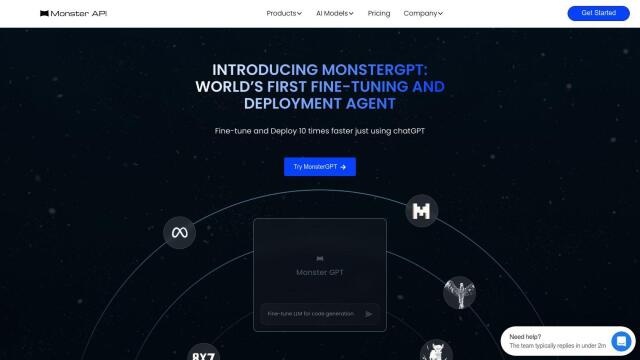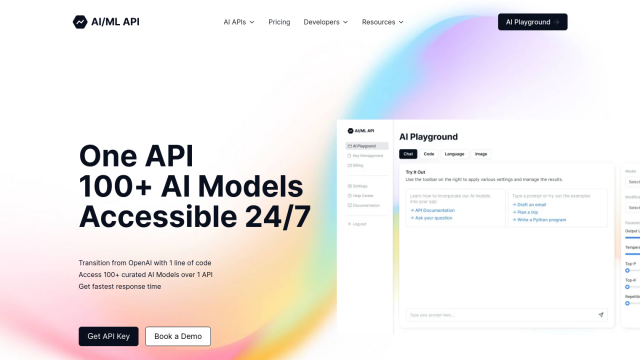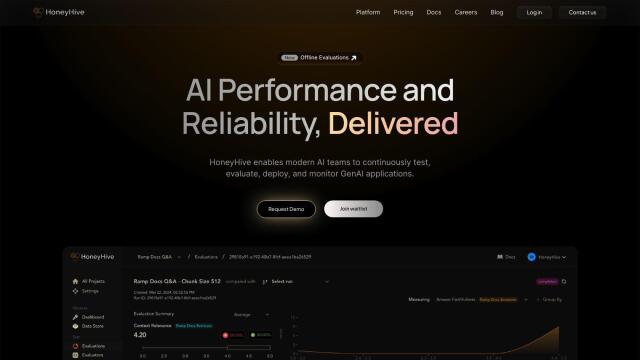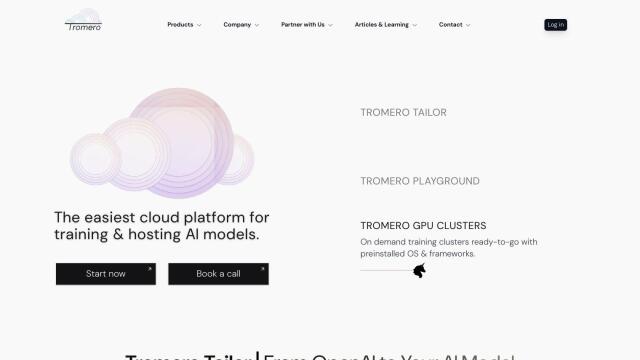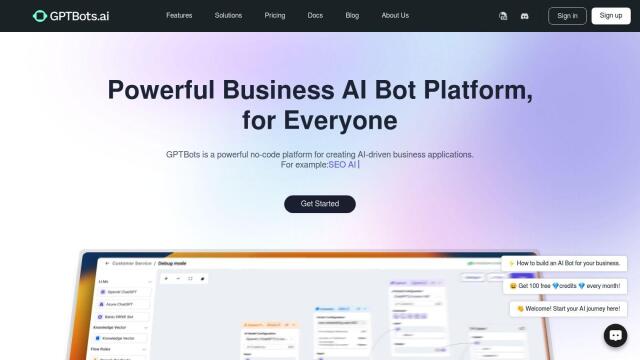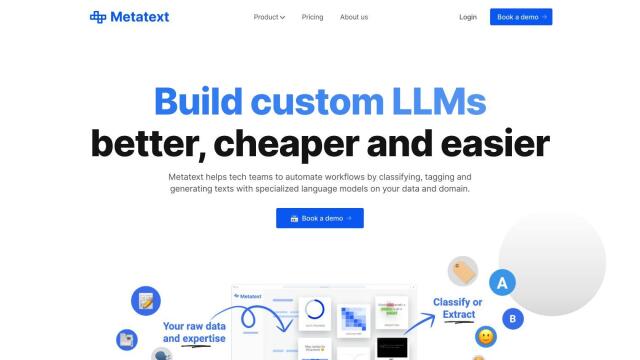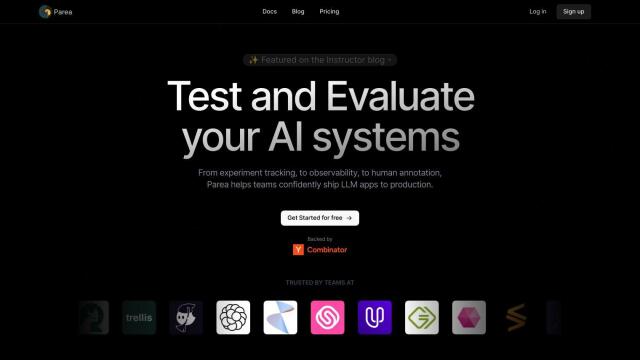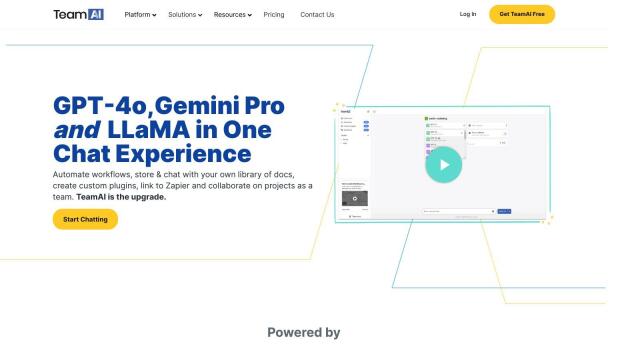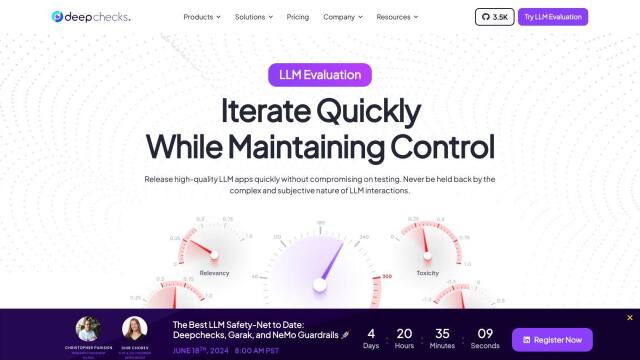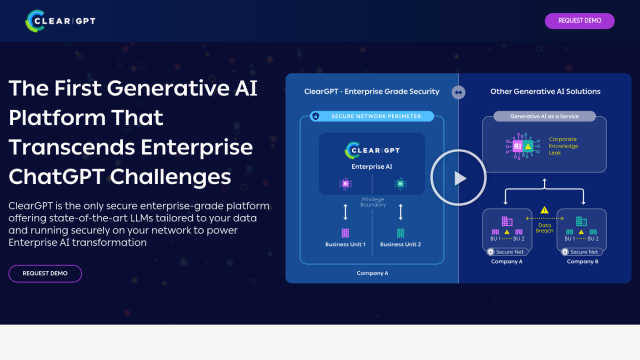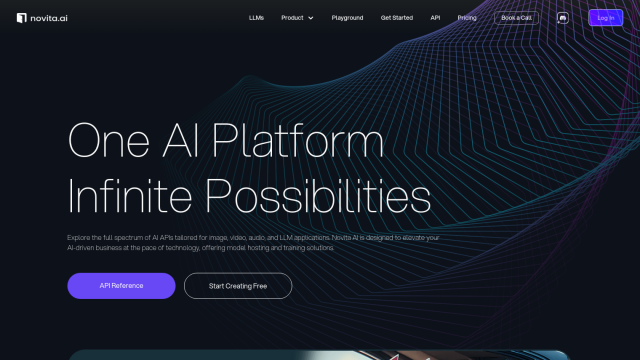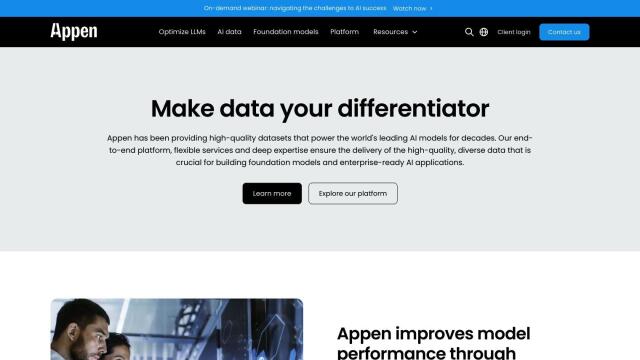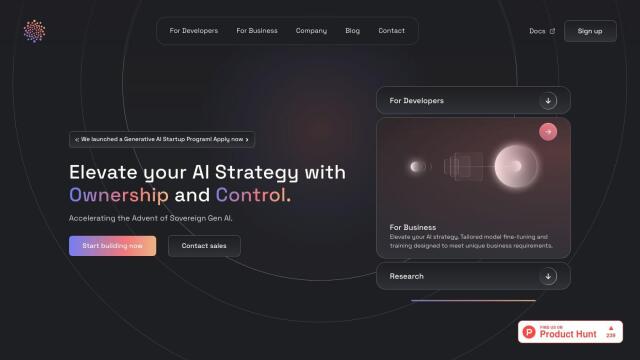

Humanloop
If you're looking for a MonsterGPT alternative, Humanloop is a good option. It's a collaborative interface for building and optimizing Large Language Models (LLMs). Humanloop has a collaborative prompt management interface, evaluation and monitoring tools and a way to customize connections to private data. It supports several LLM providers and has Python and TypeScript SDKs for integration, so it's a good fit for product teams and developers trying to get more out of their work.


Keywords AI
Another good option is Keywords AI, a DevOps platform for building, deploying and monitoring LLM-based AI applications. Keywords AI offers a single API endpoint for multiple LLM models, supports high concurrency without latency, and integrates with OpenAI APIs. The service also has a playground for testing and iterating on models, visualization and logging through pre-built dashboards, and performance monitoring with auto-evaluations. That makes it a good fit for AI startups that want to focus on product work instead of infrastructure.


Klu
Klu is another option worth a look. It lets you build, deploy and optimize generative AI applications using LLMs like GPT-4 and Llama 2. Klu features include collaboration on prompts, automated prompt engineering, version control and performance monitoring. It supports multiple LLMs and offers tools for fast iteration and custom model support, which can help AI engineers and teams work more efficiently.


Predibase
If you're on a budget, Predibase offers a service for fine-tuning and serving LLMs with a focus on efficiency. You can fine-tune open-source LLMs for your specific use case and take advantage of low-cost serving infrastructure and free serverless inference. Predibase supports a variety of models and charges on a pay-as-you-go pricing model, so it's a good option for developers who want to run AI models without a lot of overhead.

